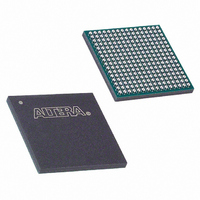EPM2210F256I5 Altera, EPM2210F256I5 Datasheet - Page 51

EPM2210F256I5
Manufacturer Part Number
EPM2210F256I5
Description
IC MAX II CPLD 2210 LE 256-FBGA
Manufacturer
Altera
Series
MAX® IIr
Specifications of EPM2210F256I5
Programmable Type
In System Programmable
Delay Time Tpd(1) Max
7.0ns
Voltage Supply - Internal
2.5V, 3.3V
Number Of Logic Elements/blocks
2210
Number Of Macrocells
1700
Number Of I /o
204
Operating Temperature
-40°C ~ 100°C
Mounting Type
Surface Mount
Package / Case
256-FBGA
Voltage
2.5V, 3.3V
Memory Type
FLASH
Number Of Logic Elements/cells
2210
Lead Free Status / RoHS Status
Contains lead / RoHS non-compliant
Features
-
Other names
544-2267
Available stocks
Company
Part Number
Manufacturer
Quantity
Price
Company:
Part Number:
EPM2210F256I5N
Manufacturer:
ALTERA
Quantity:
648
Part Number:
EPM2210F256I5N
Manufacturer:
ALTERA
Quantity:
20 000
Introduction
MAX II Hot-Socketing Specifications
Devices Can Be Driven before Power-Up
© October 2008 Altera Corporation
MII51004-2.1
1
MAX
power sequencing support. Designers can insert or remove a MAX II board in a
system during operation without undesirable effects to the system bus. The hot
socketing feature removes some of the difficulties designers face when using
components on printed circuit boards (PCBs) that contain a mixture of 3.3-, 2.5-, 1.8-,
and 1.5-V devices.
The MAX II device hot socketing feature provides:
■
■
■
This chapter contains the following sections:
■
■
MAX II devices offer all three of the features required for the hot-socketing capability
listed above without any external components or special design requirements. The
following are hot-socketing specifications:
■
■
■
Altera uses GND as reference for the hot-socketing and I/O buffers circuitry designs.
You must connect the GND between boards before connecting the V
specifications.
Signals can be driven into the MAX II device I/O pins and GCLK[3..0] pins before
or during power-up or power-down without damaging the device. MAX II devices
support any power-up or power-down sequence (V
simplifying the system-level design.
power supplies to ensure device reliability and compliance to the hot-socketing
Board or device insertion and removal
Support for any power-up sequence
Non-intrusive I/O buffers to system buses during hot insertion
“MAX II Hot-Socketing Specifications” on page 4–1
“Power-On Reset Circuitry” on page 4–5
The device can be driven before and during power-up or power-down without
any damage to the device itself.
I/O pins remain tri-stated during power-up. The device does not drive out before
or during power-up, thereby affecting other buses in operation.
Signal pins do not drive the V
to device I/O pins do not power the device V
internal paths. This is true if the V
®
II devices offer hot socketing, also known as hot plug-in or hot swap, and
4. Hot Socketing and Power-On Reset in
CCIO
or V
CCINT
CCINT
and the V
power supplies. External input signals
CCIO
CCIO
CCIO1
or V
supplies are held at GND.
, V
CCINT
CCIO2
power supplies via
MAX II Devices
, V
CCIO3
CCINT
MAX II Device Handbook
, V
and the V
CCIO4
, V
CCINT
CCIO
),














